What Is Songtrust – Review and Tutorial
Jun 08, 2023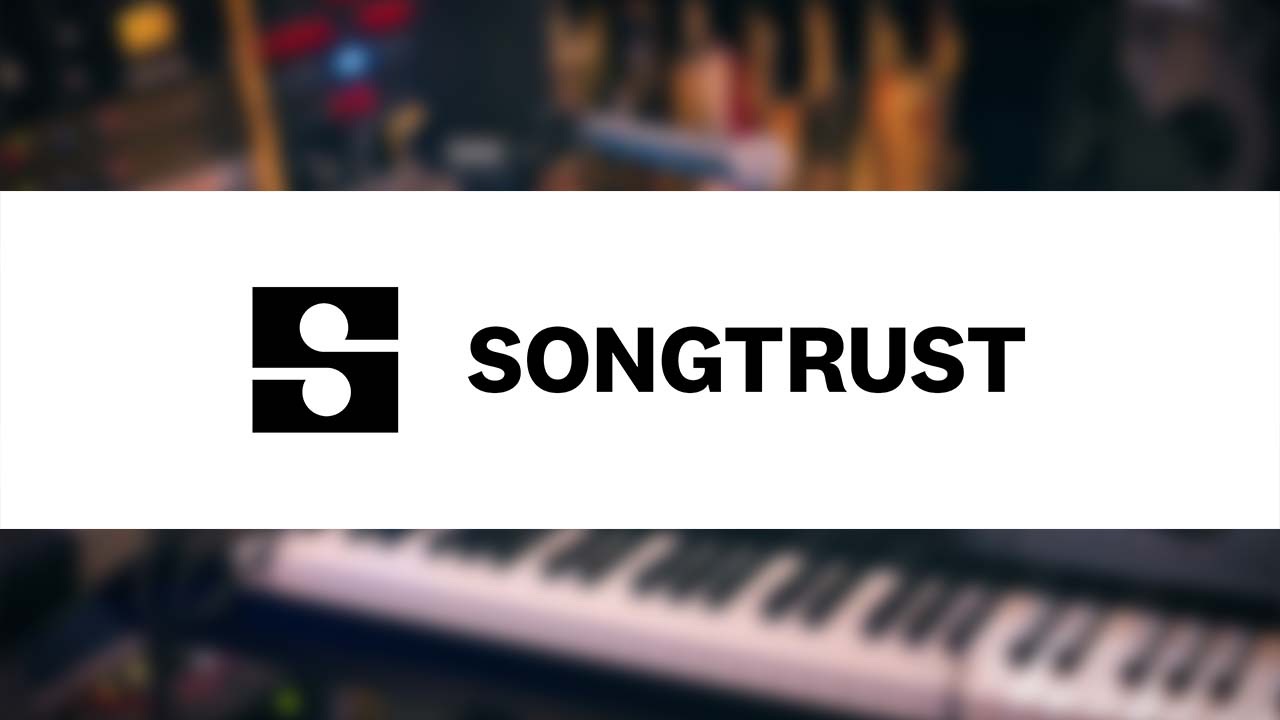
Music publishing is the terminal for artists when their music goes live on different interactive and non-interactive platforms.
It’s the business stage for promoting and monetizing songs, where the money flows. Moreover, many artists invest in their music promotion, using valuable services like ToneDen.
Following the rules of music publishing, you get your payments out of streams across radios, playlists, YouTube videos, etc. However, many artists can't wrap their heads around the snags of how the process goes on and don't know yet how to claim all royalties for their work.
The revolution of music platforms and services with the outset of online streaming in Spotify or Apple Music has extensively contributed to the music industry by making it easier than ever for everyone to have access to millions of songs in just a few clicks. And that could help you reach a broader audience—theoretically.
The real-life mechanism is way more complicated than that, as it’s not straightforward to gain royalties for creating songs, performances, etc. Due to such royalty enigmas and overloads of music platforms, a hand in dealing with the mess is pivotal.
Songtrust is a practical solution for everyone in the business, from composers to producers to songwriters, that monitors global royalties and collects them. It helps you to earn publishing in numerous ways, like when your song is streamed, played in the bar, or covered on YouTube.
In this article, I’ll explain Songtrust in detail and walk you through a step-by-step tutorial for artist and song registration.
Songtrust: The Easy Way to Receive Composition Royalties
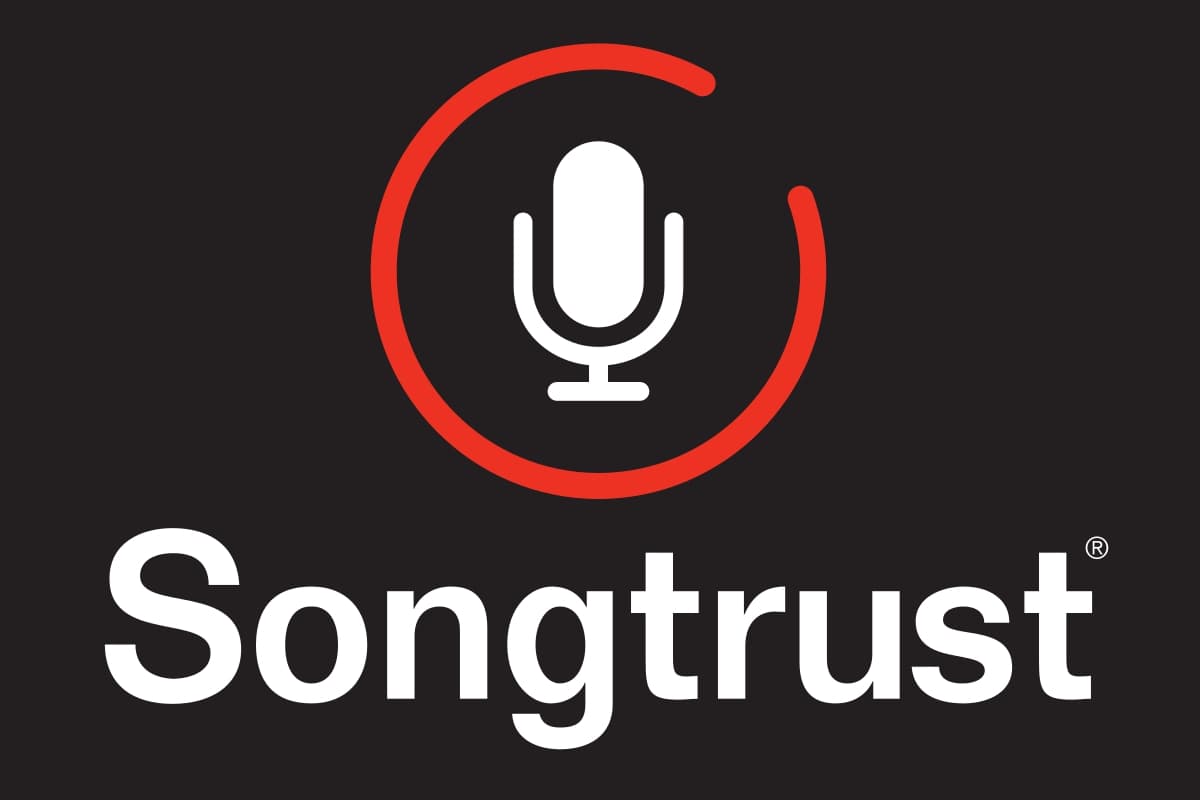
Independent artists may, for any personal or career-oriented preferences, decide to carry on without a representative music publisher to take care of the business side of the music industry, including collecting and claiming royalties. However, this would expedite various troubles.
Although artists can personally collect performance and/or mechanical royalties by registering their compositions to a local PRO (Performance Rights Organization), the chances are you won’t receive all the money anyway. That is primarily because the main purpose for collective management organizations is to merely collect royalties across interactive and non-interactive streaming services, not turning them over to the artist(s) down to the last penny.
Songtrust. however, could sort the mess out for you. It’s a global publishing administrator that registers songs with PROs and other pay sources, like digital service providers and mechanical collection societies. This is particularly helpful for independent artists who don’t make much out of copyright legal terms, which would potentially lead to failure or fraudulent deceit.
In addition to independent artists and songwriters, big-name publishers can benefit from Songtrust to collect royalties for artists they represent.
Songtrust vs. SoundExchange: Differences Explained
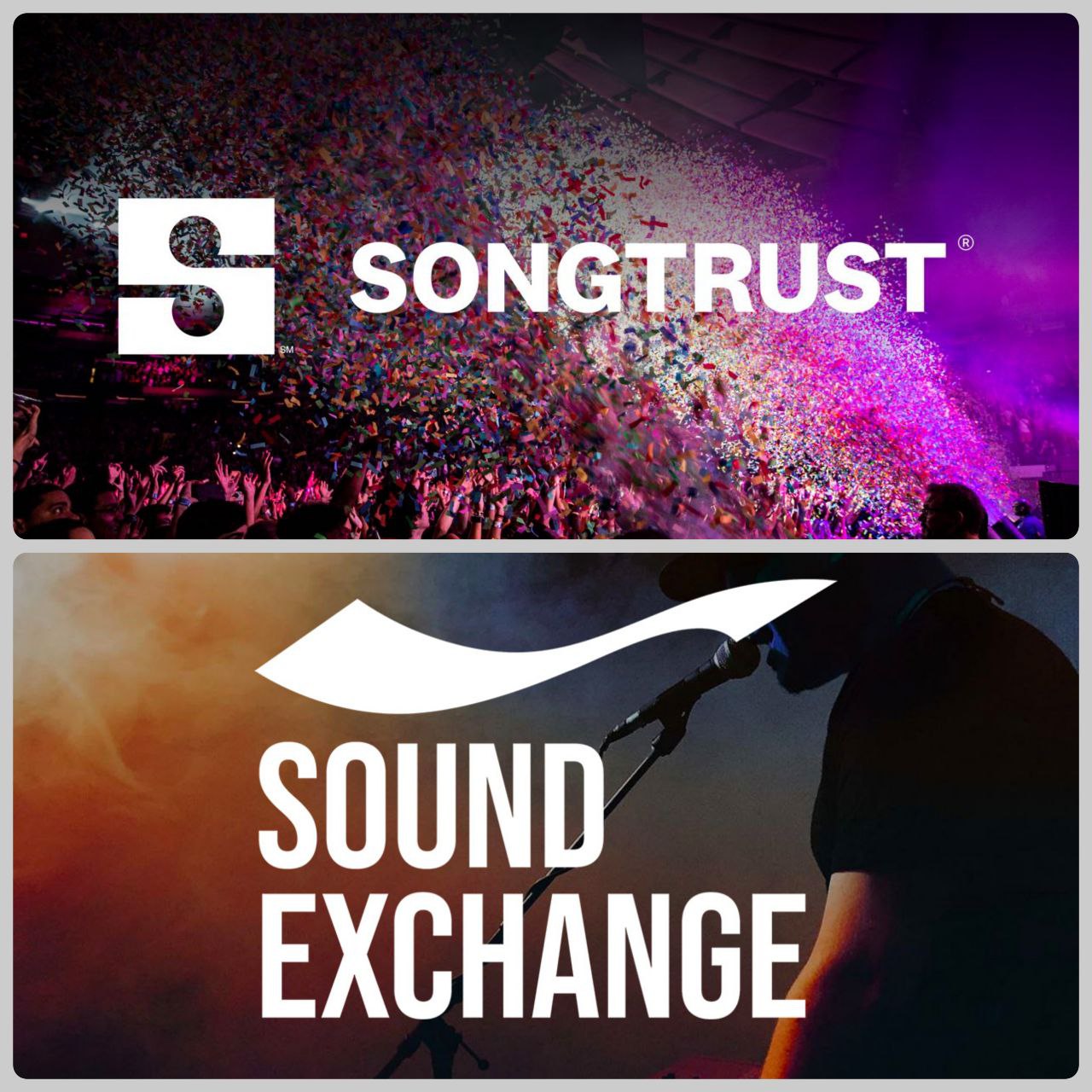
There’s a narrow border between Songtrust and SoundExchange, another practical service for collecting royalties but for a different purpose.
In general, there are two main types of music copyrights: music publishing (the composition) royalties and master recording royalties. In short, music publishing royalty is for any original musical works of the lead creator. On the other hand, master recording (aka sound recording) royalty belongs specifically to a final recorded song that may or may not have the same creator.
An example would shed light on the differences between the two. Neil Young owns all the rights to his widely celebrated song ‘My My, Hey Hey (Out of the Blue; he has written and recorded himself and now owns both types of royalties, which itself is split according to Young’s contract with his music publisher. Nevertheless, the paycheck format alters when it comes to cover songs. In this case, Battleme or Chromatics have the right to appeal only for the master recording royalty since they’re not the original owner of the signature melodic and harmonic basis.
PROs of each region gather these royalties; for instance, PRS is responsible for royalty collection in the UK, while BMI, ASCAP, and SESAC carry that out in the US. Subsequently, Songtrust or SoundExchange can collect the pertinent royalties you’re entitled to on your behalf.
Songtrust collects composition royalties, whereas SoundExchange collects royalties for sound recordings.
Signing up with Songtrust
Songtrust costs a one-time fee of $100 per songwriter plus a 15% administration fee to enjoy all the features for a year. Each artist gets paid four times in this duration, typically at the end of each quarter.
Sign Up
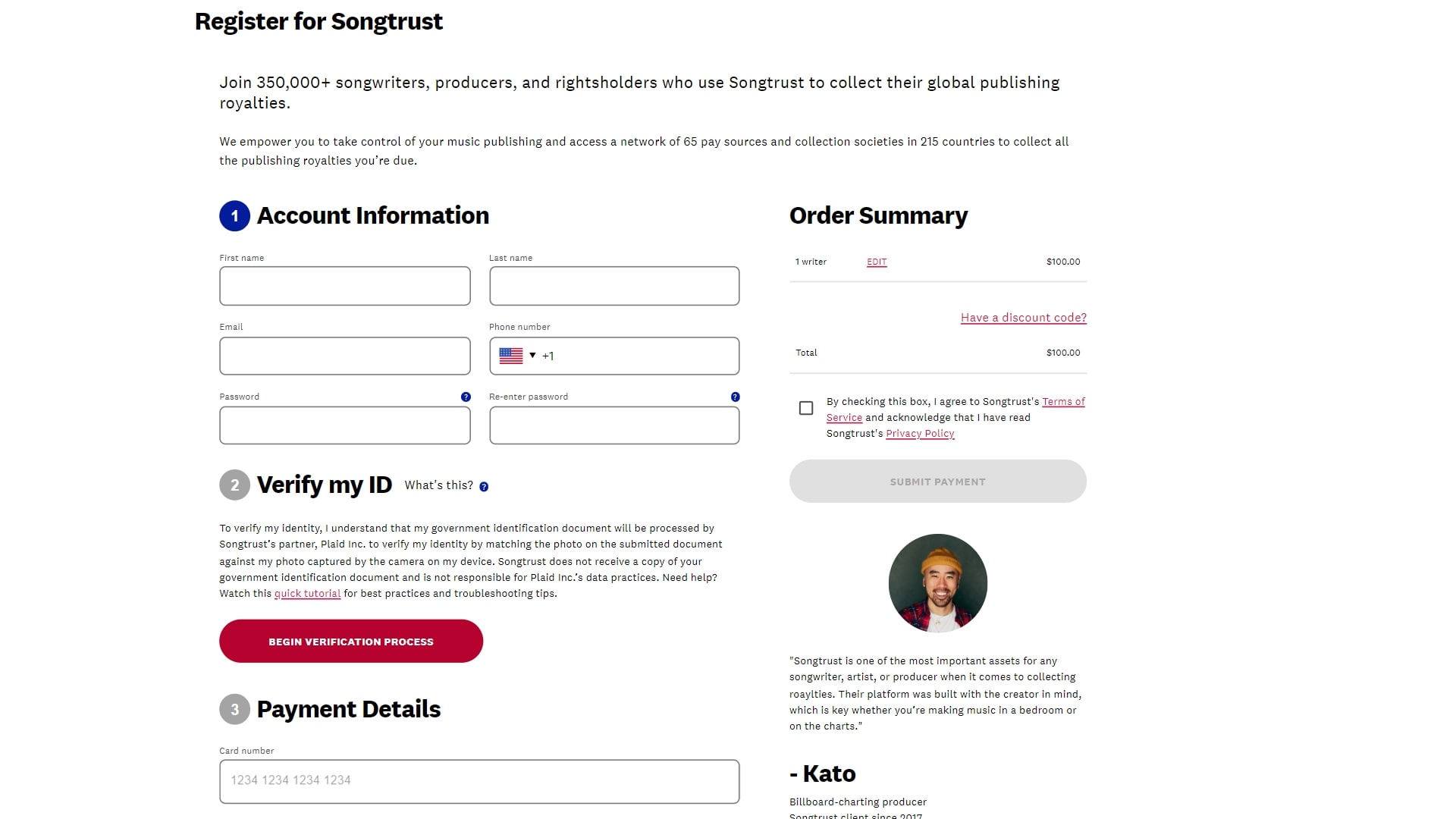
First off, you must register on Songtrust’s website using the button in the top right corner and create an account. You should fill out the registration form with your personal information, including your name, phone number, and payment details.
Once you’ve checked the agreement (terms of service) and paid the bill, you can start adding your songs to your Songtrust account.
Claim Publishing Royalties
Before getting started on listing your songs, you’ll be required to complete the ‘New Songtrust Writer’ section. To do so, you should initially add your PRO, and in case you’re not a member of any PRO, you can affiliate through Songtrust straight away.
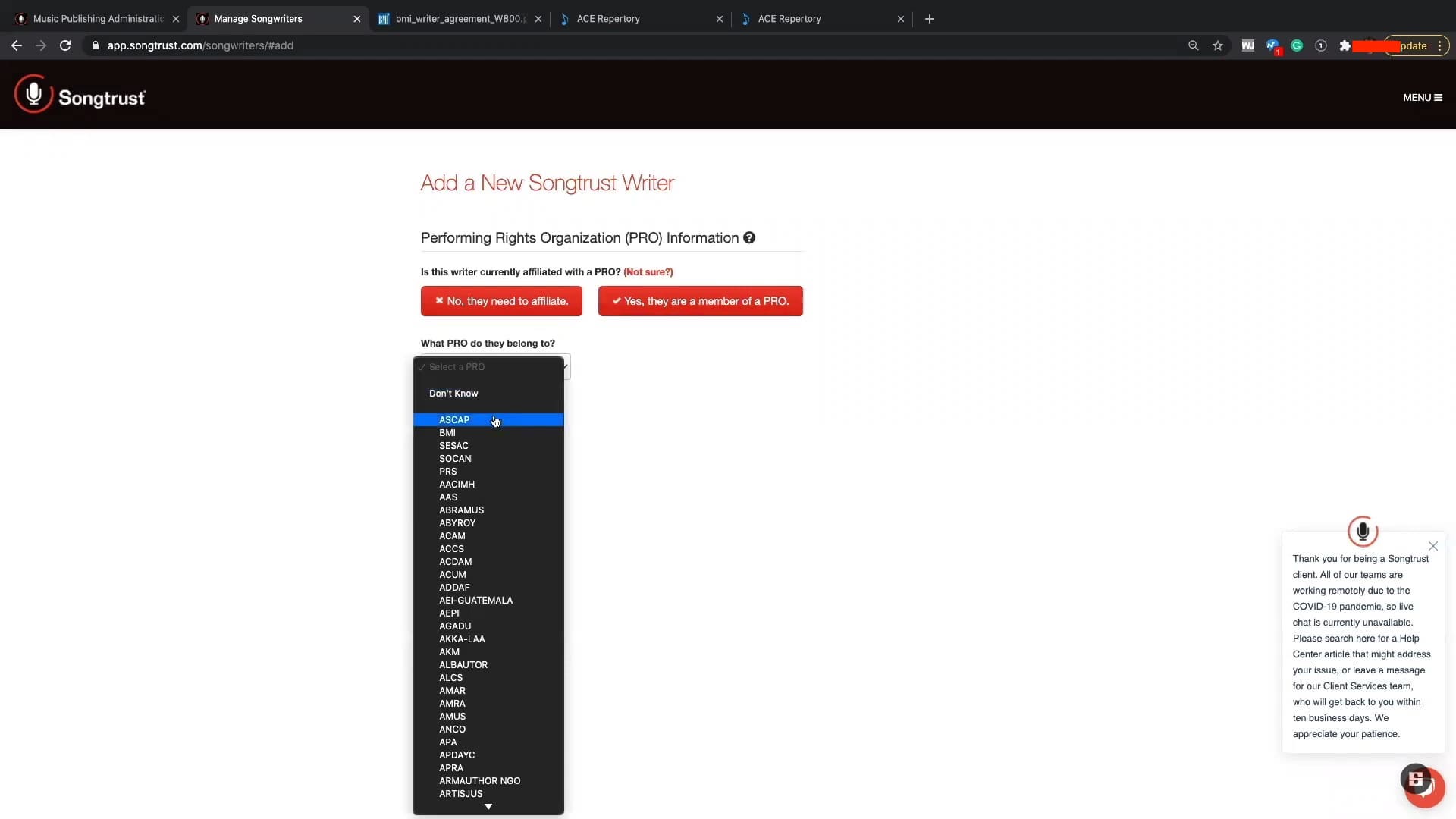
Next, you should provide information in the new writer section.
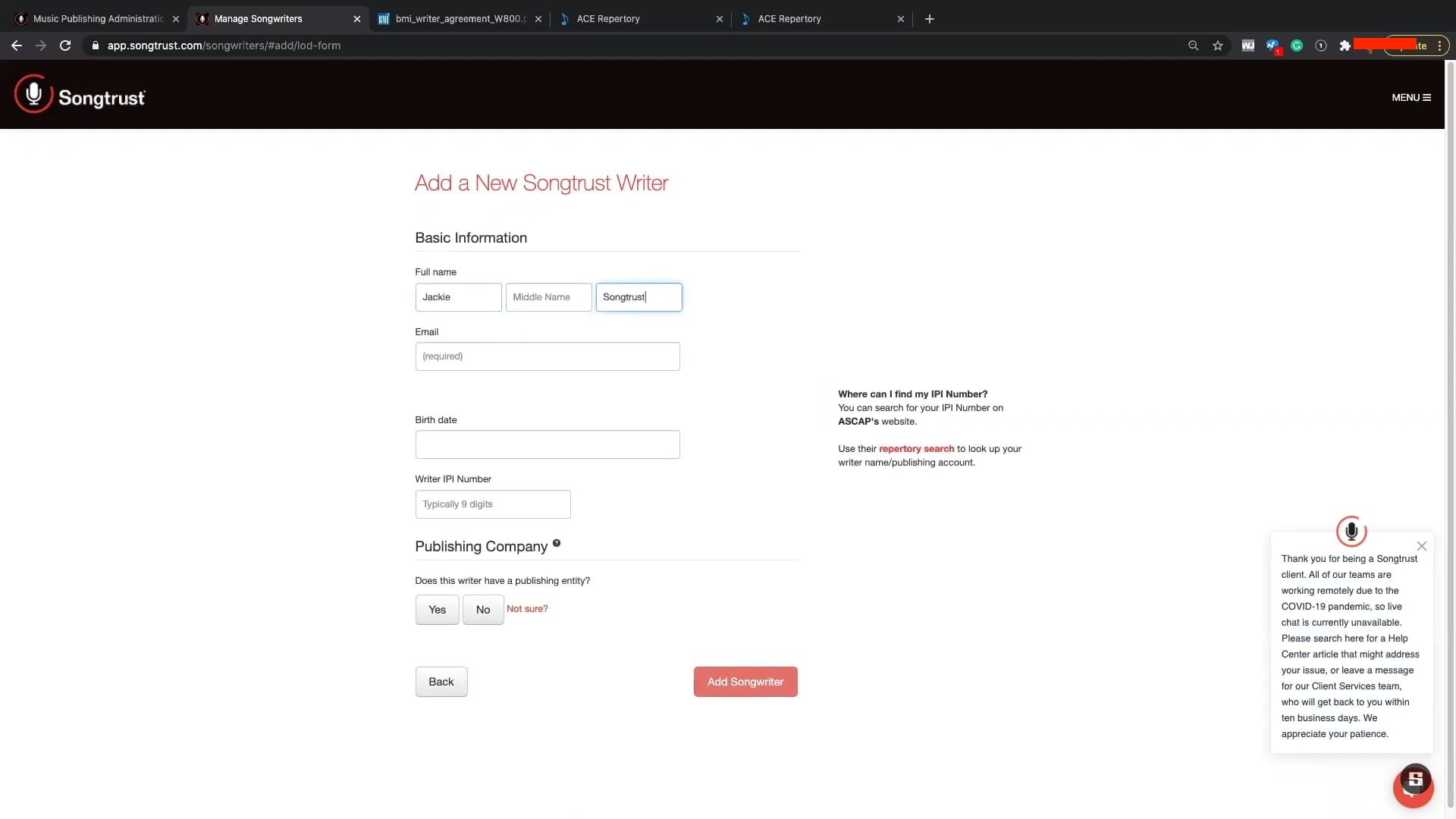
Now, you can access all the features in your dashboard, such as adding new songs, YouTube monitoring, and financial settings.

The next step is registering all your released tracks, which might take an hour or two. For each item, you need to fill out multiple boxes, including the song title, all songwriters for each song and their share of it, ISWC (International Standard Work Code), and lyrics.
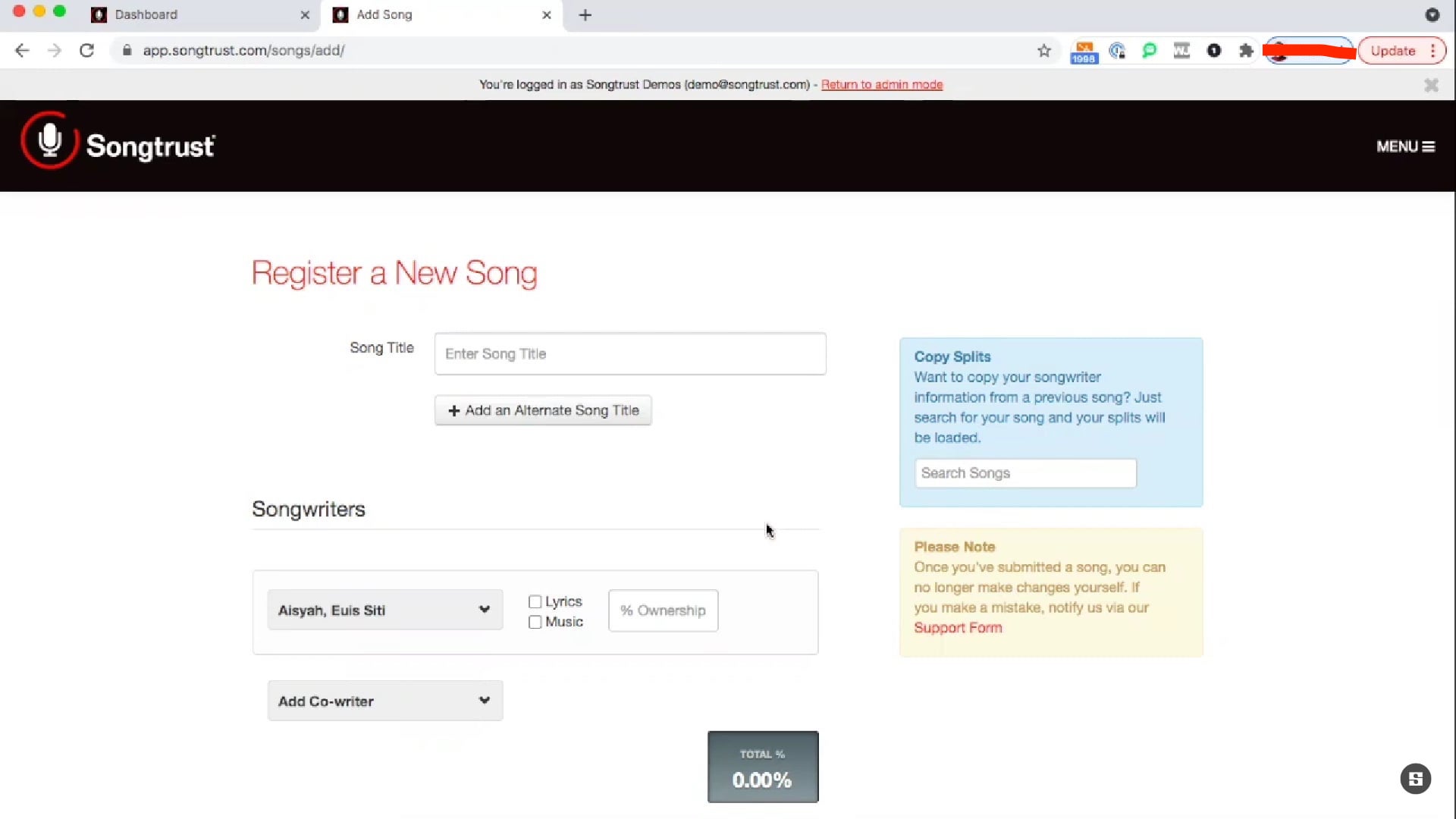
Though a few boxes are optional, I recommend you provide as much information as possible to keep the shares and your songs’ credit transparent and accurate. For example, ISWC serves as a unique identifier for recordings and can help Songtrust track your royalty more efficiently.
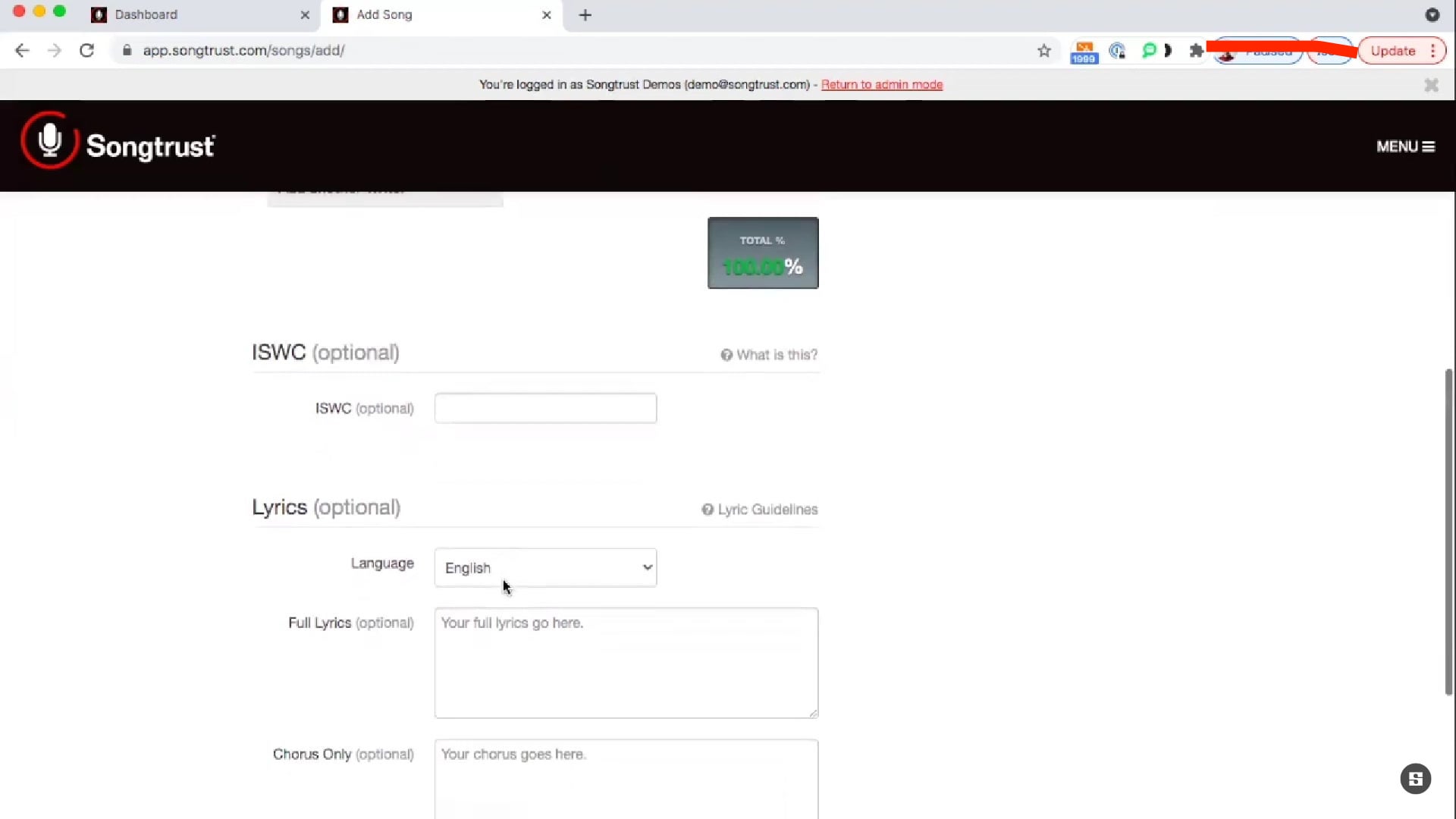
Once you’re done, Songtrust will begin the process of registering your songs with PROs and collecting royalties on your behalf.
Final Thoughts On Songtrust: Do You Need It?
Most artists are fishing for the best music promotion services to step up their incomings and miss out on twists of actually earning them. While your local PRO only collects royalties in your country, Songtrust ensures you receive all performance royalties around the globe, including mechanical and international royalties. It’s a nifty tool for songwriters who are willing to gain their music publishing royalty from all PROs without registering and paying up each.
Signing up with Songtrust is straightforward and wouldn’t take you more than half an hour unless you’ve not registered with a PRO, which will take extra to fill in the requisite information.
Note that it wouldn’t be possible to use Songtrust if you’re already in contract with another publishing administrator, such as the CD Baby Pro plan.





